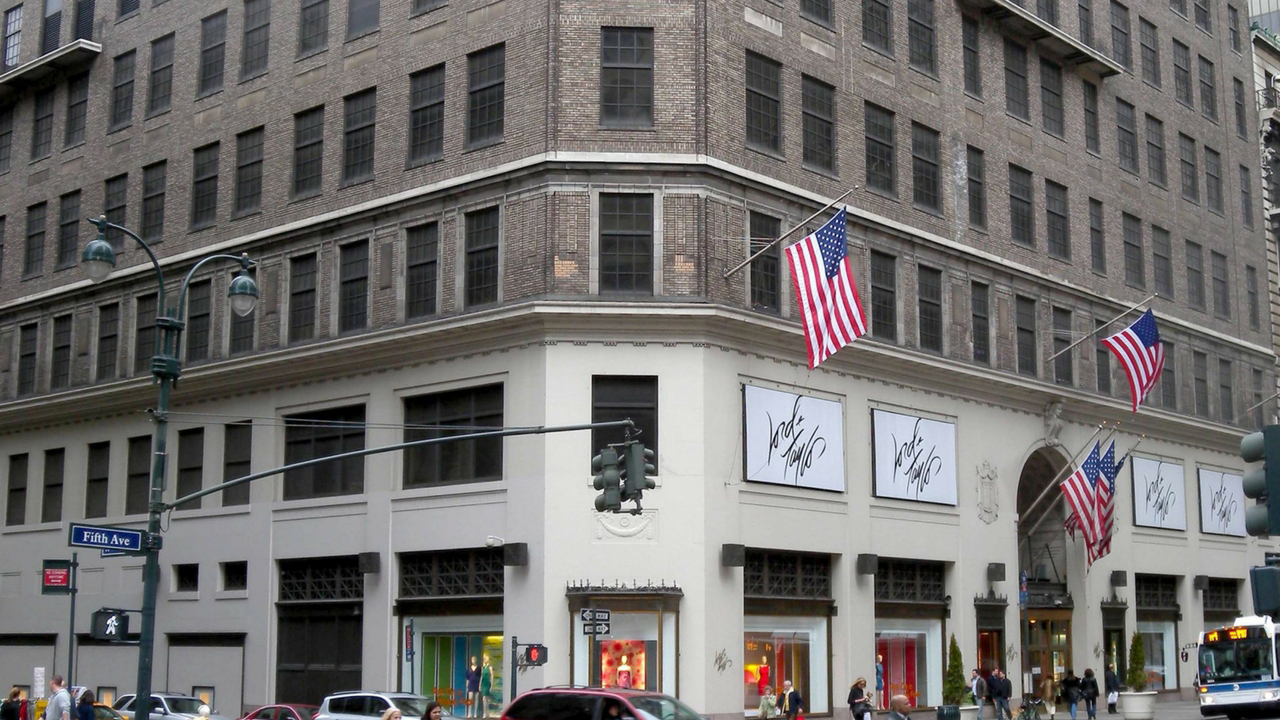Amid continued doubts of the sustainability of its business model and following statements from its Finance Director that “WeWork doesn’t expect profitability this year”, the coworking giant went on a shopping spree using other people’s money, and bought none other than Lord & Taylor’s flagship store building in NYC’s Fifth Avenue — and for no shy amount.
For the price of $850 million, the New York City landmark, spanning 676,000-square feet, will become WeWork’s new headquarters starting 2019.
The transaction, however, was not carried out by WeWork the coworking space provider. It was done through WeWork Property Advisors, an arm of the company that was set up in a joint venture with Rhône Capital and that was created for the sole purpose of buying real-estate property.
It appears to be that WeWork is ‘diversifying’ into owned real-estate, which makes sense, as this will allow them to benefit from any rise in value of the buildings in which they operate their coworking business. However, WeWork is currently valued as a “tech company”, not a property company.
Property companies generate a much, much lower value as they trade on yield and not on multiples of revenue, like a tech company. Buying property is a good long-term investment for WeWork, however it is not going to support anything near the valuation they have today: US$ 20 billion.
So, what exactly is WeWork?
They started out as a coworking company, but their efforts have focused heavily on separating themselves from the coworking industry. CEO Adam Neumann has also made it very clear that he does not want WeWork to be seen as a real-estate company. And while the company is currently valued as a tech company, the Wall Street Journal reported that Neumann has also stated that it is, in fact, not a tech company.
WeWork is neither a real-estate company nor a tech company. (…) He (Neumann) calls the company a platform. (…) Mr. Neumann told PR representatives to push back against characterizations in the media of WeWork as a real-estate company and instead describe WeWork as a lifestyle or community-focused company.
In the same article, Artie Minson, WeWork’s Finance Director stated that, “We (WeWork) frankly are our own category.”
However, what category this is remains to be established.
Not coworking. Not tech. Not real-estate (although they have started to buy property). So, what then?
Callum Battersby, an analyst at Berenberg, said in an interview with Wired that “WeWork’s current business is more similar to the Regus business model of the early aughts when the business collapsed.” Regus has about one-eighth of the market value of WeWork. Frank Cottle was, indeed, right when he said that “WeWork is basically Regus with a paint job”…with a much higher valuation, however.
The question, however, is not only what or who exactly is WeWork. The question is also whether or not they are trying to find themselves their own strategic identity?
Barry Sternlicht said in the Wall Street Journal article mentioned above that WeWork “dressed it (a real-estate company) up and made it into a community, and that turned into a tech play.”
Is WeWork then playing dress up to find out what they want to be and how they want to be valued? The game can come at quite a high price, and the way they’ve been spending their money might point us in the right direction, albeit as confusing as that may seem at the moment.
WeWork is renting out office space. They are also buying real-estate. They are also operating as a management company (Powered by We). In short, they are constantly re-envisioning themselves, which is not necessarily a bad thing. However it does bring into question their market value and whether or not $20 billion is an accurate representation of their worth. It also begs the question of whether or not their business, or lines of businesses, are sustainable in the long-run if they keep on changing and switching their focus.
They have workspace. They have living space. They have working out space… the only thing they are missing is a resting place (cemeteries maybe?). WeWork. WeLive. WeWork(Out). What remains to be seen is whether or not WeDie.
WeWork is already operating without any profitability and continued spending, like the one on the Lord & Taylor building, can potentially put the company on a risky position.
WeWork’s purchase of the Lord & Taylor building comes amidst criticism of their aggressive growth and ‘marketing’ strategies. The company is growing at a fast-rate and many doubt that they will be able to keep up and keep their centers occupied.
Starting 2019 WeWork will occupy most of the Lord & Taylor Fifth Avenue building, however, it will rent out the bottom floors to Lord & Taylor. WeWork will also be taking up space in the upper floors of HBC stores in Canada and Frankfurt. Rhône Capital will also invest US$ 500 million in Hudson’s Bay, Lord & Taylor’s parent company.

















